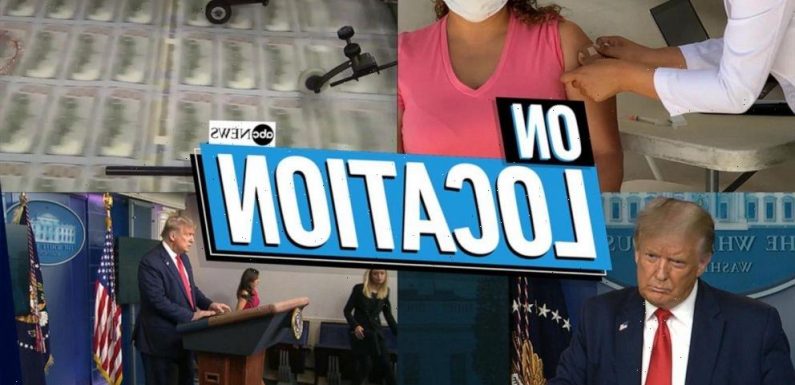
LE PECQ, France — France’s government offered strong praise Wednesday to YouTubers and other social media influencers who resisted a mysterious effort to recruit them for a smear campaign to spread disinformation to their millions of young followers about the Pfizer COVID-19 vaccine.
Multiple France-based influencers with sizable audiences on Twitter, Instagram and other platforms said they were contacted with offers of hush-hush payments to make bogus claims about supposed deadly Pfizer vaccine risks.
YouTuber Léo Grasset, among those contacted, said the shady advertising agency that sought to recruit him “wanted me to talk about the Pfizer vaccine in a way that would be detrimental to the Pfizer vaccine reputation.”
He and others said they refused. They got a thumbs up Wednesday from French government spokesman Gabriel Attal.
“I want to salute the great responsibility of these young YouTubers or influencers who not only didn’t fall for this and didn’t, through cupidity, allow themselves to be manipulated but also denounced it publicly,” Attal said. “I really want to salute that.”
Grasset, who has 1.1 million subscribers on YouTube, said he and other social media and internet content-creators are “at the center of something going on like an information war.”
The person who contacted Grasset identified himself as Anton and said his ad agency has a “quite considerable” budget for what he described as an “information campaign” about “COVID-19 and the vaccines offered to the European population, notably AstraZeneca and Pfizer.”
Specifically, “Anton” asked for a 45- to 60-second video on Instagram, TikTok or YouTube to say that “the mortality rate of the Pfizer vaccine is 3 times greater than the AstraZeneca” and querying why the European Union is buying it.
He refused in a follow-up email to divulge who is financing the campaign, saying: “The client prefers to remain incognito.”
Instructions he sent also said that if influencers agreed to take part then they shouldn’t say that they were being sponsored and should “present the material as your own independent view.”
Grasset shared the email exchanges with The Associated Press. He said that given his large YouTube following, he might have earned tens of thousands of euros (dollars) had he agreed to take part.
Instead, he wrote back that “I can’t work for a client that won’t give its name and who asks me to hide the partnership.”
The AP sent emails requesting comment to a contact address listed on ad agency’s website and to the email address used by “Anton.” Neither elicited a response.
The Associated Press was not immediately able to determine who hosts the website of Fazze.com. Internet records show that the San Francisco firm Cloudflare provides cybersecurity protection for the site against denial-of-service and other attacks, effectively masking its host to public scrutiny. A Cloudflare spokesman said the U.S. company does not host Fazze.com and did not say who does.
Social media users in Germany also claimed to have been contacted for the disinformation campaign. German authorities said officials were discussing the incident at the international level.
“There is an exchange between the European authorities concerned,” Christofer Burger, a spokesman for the German Foreign Ministry, told reporters in Berlin.
“They are part of a network that has regular contact about cases of disinformation and also about how to deal with individual incidents,” he said, without elaborating.
———
Frank Bajak in Boston and Frank Jordans in Berlin contributed to this report.
———
Follow all of AP’s pandemic coverage at https://apnews.com/hub/coronavirus-pandemic, https://apnews.com/hub/coronavirus-vaccine and https://apnews.com/UnderstandingtheOutbreak
Source: Read Full Article